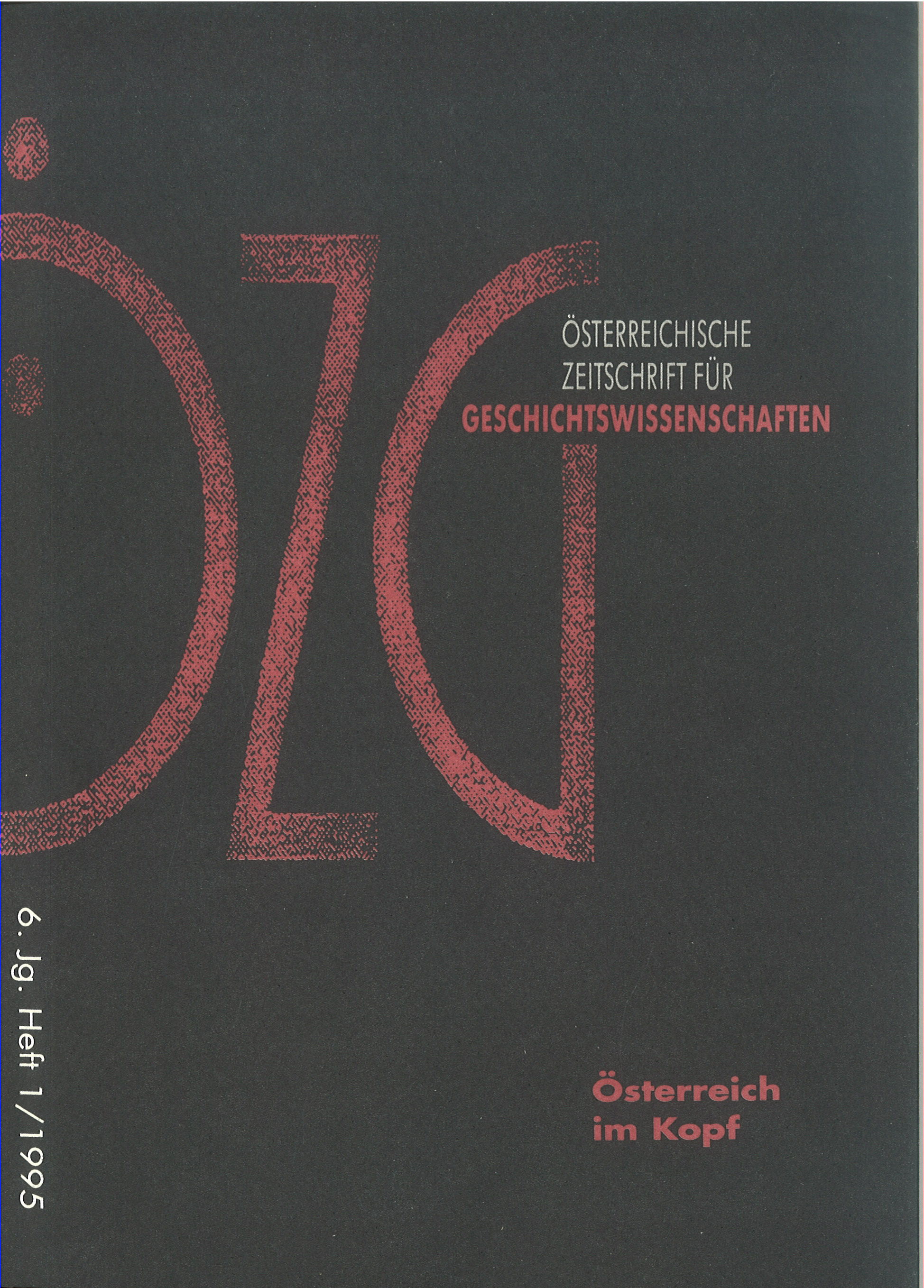The long shadow of historiography, or baroque Enlightenment
Ernst Hanisch's book ,Der lange Schatten des Staates’ . A critique
DOI:
https://doi.org/10.25365/oezg-1995-6-1-5Abstract
The ÖZG-team discusses the question why a book like Ernst Hanisch's Der lange Schatten des Staates usually gets popular and how it contributes to the permanent re-writing of national identity. lt seems that historiography as a ,master narrative’ is only derivable from using unclear notions, from mixing up different epistemic approaches and from using everyday language. The antagonism Baroque vs. Enlightenment turns out to be Hanisch's central concept. This, however, does not entirely coincide with recent results of research but is much more a dramaturgical tool of the book. Religion, ,Heimat’, women, sexuality and body experiences are not subjects of analysis, but more often remain mythic elements of the plot. The conclusion is, that historiography as a unifying master narrative on the one side and research as an innovative revision of conventional historical imaginations on the other cannot be conducted simultaneously.







